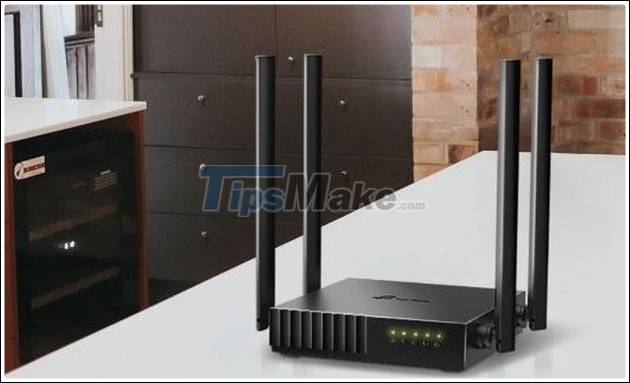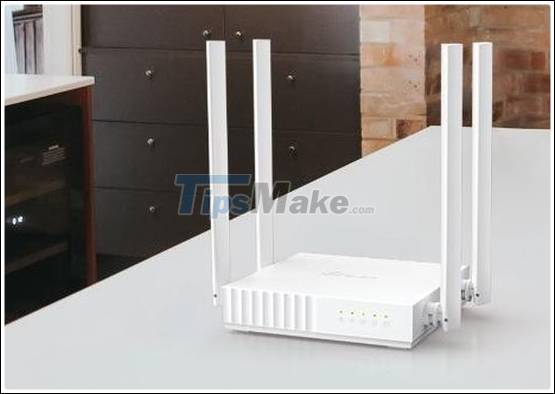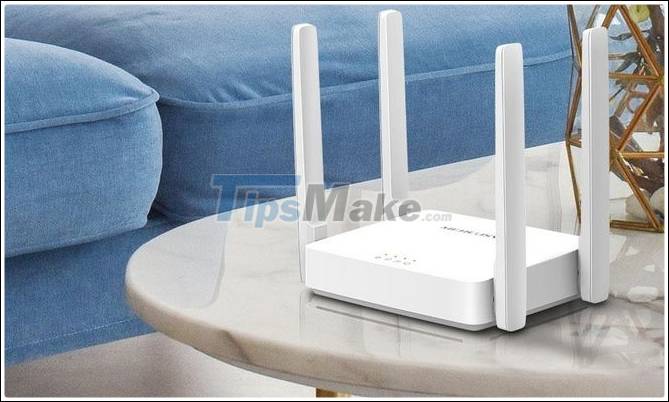Should I choose a 1-band or dual-band Wi-Fi router?
Learn about Wi-Fi routers, one of the common terms is 'band', for example 2 popular bands are 2.4 GHz and 5 GHz. These numbers represent the frequencies at which the wireless network can operate. Wi-Fi 802.11B or G networks use the 2.4 GHz band; while N operates on both 2.4 GHz and 5 GHz bands.
Waves of the 2.4 GHz band are easily affected by devices operating on this frequency band such as cordless phones, Bluetooth, microwaves . Meanwhile, the 5 GHz band is less prone to glitches due to the band. through large bandwidth, but the broadcast range is narrow.
Therefore, experts recommend using routers that support both bands (dual band) on the same network. These devices automatically switch between 5 GHz and 2.4 GHz bands for a seamless and smooth Wi-Fi experience.
There are many types of dual-band routers launched in the market today. In which, TP-Link Archer C54, TP-Link Archer C24 and Mercusys AC10 with different features and level of perception are notable products.
TP-Link Archer C54 dual-band AC1200
The speed of the router is a prerequisite for the best Wi-Fi experience. Judging by this index, Archer C54 dual-band AC1200 impresses with 1,200 Mbps threshold - the fastest connection speed today according to Wi-Fi 6. In which, the 5 GHz band is 867 Mbps and the band 2 , 4 GHz is 300 Mbps for further connectivity.

In terms of specifications, Archer C54 is equipped with 4 high-performance external antennas to expand the broadcast area. Beamforming technology detects and focuses the Wi-Fi signal towards the device even when the device is connected at a distance or low power. In addition, Archer C54 with MU-MIMO technology for high performance, helps connect to multiple devices while maintaining low latency.
TP-Link also installs for Archer C54 many features such as 3 in 1 mode (supports router mode, access point and parallel extension); parental controls manage when and how connected devices are accessed; a guest network aimed at providing separate access to guests and ensuring security for the primary network; IPv6 support… Reference price 499,000 VND at CellphoneS.
TP-Link Archer C24 dual-band AC750
TP-Link Archer C24 works well on both 2.4 GHz bands for smooth web surfing, reading mail, viewing images; and 5 GHz for fast connectivity when playing games or watching 4K movies on both phones and laptops. In addition, the product is also equipped with 4 antennas to create a wide coverage area, possessing many modern technologies similar to Archer C54.

The biggest difference between the Archer C24 and C54 is the speed. While the Archer C54 has speeds up to 1,200 Mbps, the Archer C24 is limited to about 750 Mbps (2.4 GHz for 300 Mbps and 5 GHz is 433 Mbps), suitable for customers who need moderate bandwidth. Reference price 439,000 VND at CellphoneS.
Mercusys AC10 dual band AC1200
Meeting the 802.11ac Wi-Fi standard, AC10 provides a wireless transmission line of 1,200 Mbps, 3 times faster than the speed of previous 802.11n standards. The router achieves 300 Mbps on the 2.4 GHz band and 867 Mbps on the 5 GHz band for more bandwidth intensive activities. Four 5 dBi external antennas are powered by advanced antenna technology to extend wireless coverage in your home or office.

AC10 is also equipped with Beamforming technology, MU-MIMO and many other features such as parental control, IPTV and IPv6 support . So this router quickly detects location, concentrates signal strength. wire towards connected device.
At the same time, the router communicates with multiple devices at the same time, allowing these devices to connect at speeds faster than standard AC routers. This not only increases the overall network throughput, but also provides a more stable, secure connection.